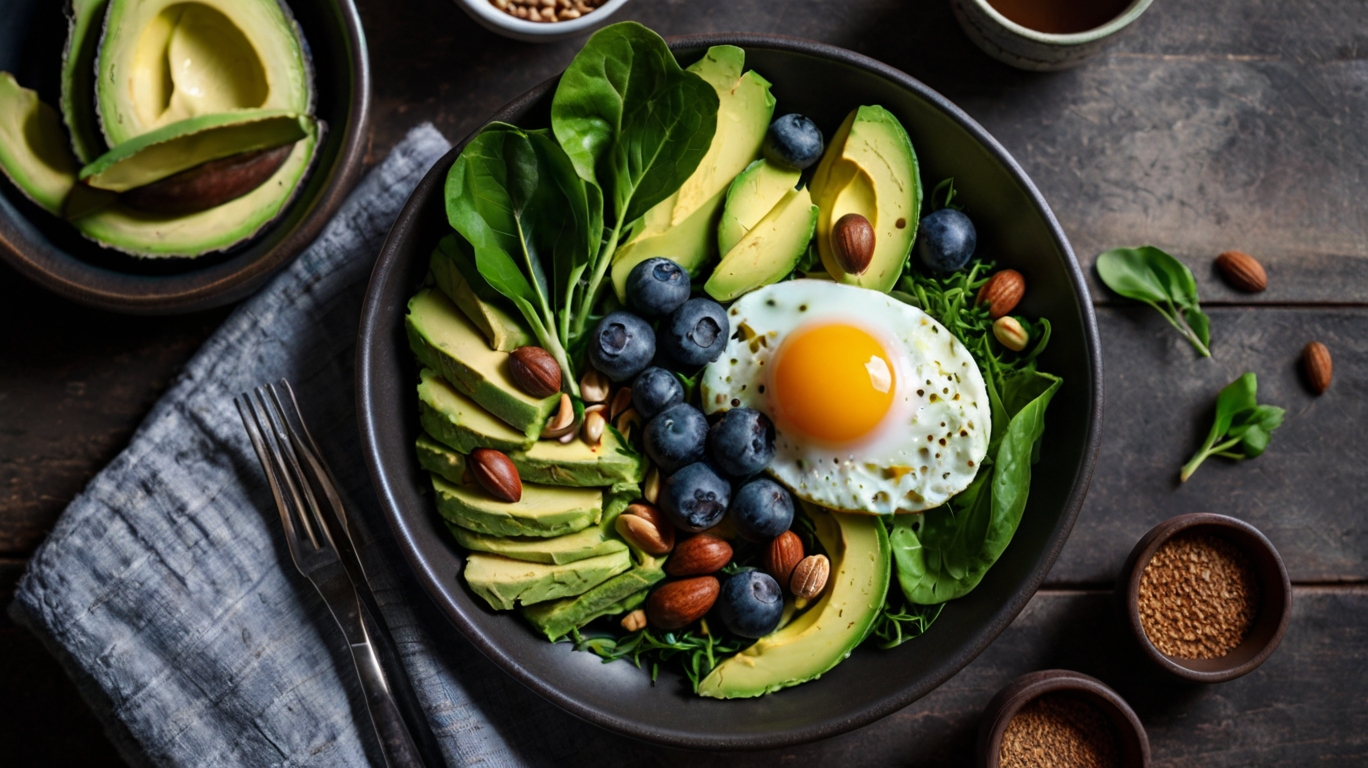Welcome to your ultimate guide to achieving optimal nutritional health and wellness. We’ll explore the world of nutrition deeply. You’ll get essential tips and strategies to boost your well-being. From learning about balanced diets to eating nutrient-dense foods, this guide will help you make better choices. It’s your step-by-step journey to a healthier, more vibrant life.
Key Takeaways
- Discover the connection between diet and overall well-being
- Learn to debunk common myths about healthy eating
- Explore the role of macronutrients in a balanced lifestyle
- Fuel your body with nutrient-dense, whole foods
- Understand the importance of mindful eating for holistic nutrition

Understanding the Importance of Nutritious Eating
Eating a balanced diet is key to our health. What we eat affects our body, mind, and emotions. Knowing the value of good nutrition helps us live better and reach our health goals.
The Link Between Diet and Overall Well-being
Eating foods close to their natural state gives us the vitamins and minerals we need. A diet full of whole foods can lower the risk of diseases like heart disease and diabetes. It also helps our brain work better, lifts our mood, and improves sleep quality.
Debunking Common Myths About Healthy Eating
- Myth: Healthy eating is expensive and time-consuming.
- Fact: You can eat well without spending a lot or spending too much time. Just plan a little.
- Myth: Cutting out entire food groups is the best way to lose weight.
- Fact: Losing weight safely means eating a balanced diet. Focus on eating less and choosing foods full of nutrients.
- Myth: Healthy eating means giving up all your favorite foods.
- Fact: You can still enjoy your favorite foods by eating them in moderation. This is part of a healthy lifestyle.
By clearing up these myths, we can make better food choices. This leads to healthier eating habits for the long run.

Nutritional Health Tips for a Balanced Diet
Getting a balanced diet is key for good health and feeling great. By adding whole foods to your meals and knowing about macronutrients, you can start living healthier.
Incorporating Whole Foods into Your Meals
Whole foods like fresh fruits, veggies, whole grains, lean meats, and healthy fats are key for a good diet. They’re full of vitamins, minerals, and fiber. These help with a balanced diet tips. Try to eat a mix of colorful foods to get all the nutrients you need.
The Role of Macronutrients in a Healthy Lifestyle
- Protein: Important for fixing tissues, fighting off sickness, and building muscles. Include whole foods like lean meats, fish, eggs, and plants in your meals.
- Carbohydrates: Give you energy for your body and brain. Choose complex carbs in whole grains, fruits, and veggies for more fiber and nutrients.
- Fats: Needed for making hormones, keeping your brain healthy, and absorbing nutrients. Add healthy fats from avocados, nuts, seeds, and olive oil to your balanced diet tips.
By balancing these macronutrients in your diet, you help your metabolism, keep your energy steady, and boost your overall health.

Fueling Your Body with Nutrient-Dense Foods
The foods we eat are key to a healthy lifestyle. Foods full of vitamins, minerals, and good compounds fuel our bodies and support our health. These whole foods give us energy and help us stay strong.
Eating a mix of leafy greens, fruits, grains, and lean proteins is important. It helps us feel more energetic, boosts our immune system, and makes our bodies stronger. Choosing these foods means our bodies get what they need to work well.
The Power of Nutrient-Dense Foods
Nutrient-dense foods are vital for a healthy diet. They’re full of vitamins, minerals, and substances that help our bodies. Eating a variety of these foods offers many benefits, like:
- Enhanced energy levels and stamina
- Improved immune system function
- Better digestive health
- Reduced risk of chronic diseases
- Stronger bones and muscles
By focusing on nutrient-dense foods, you make healthy eating work for you. This helps your body do its best.
Unlocking the Nutritional Treasure Trove
Adding a mix of nutrient-dense foods to your meals is crucial. It makes sure your body gets all the nutrients it needs. Some top choices include:
| Food Category | Nutrient-Dense Examples |
|---|---|
| Fruits and Vegetables | Kale, spinach, broccoli, bell peppers, berries, oranges, avocados |
| Whole Grains | Quinoa, brown rice, oats, whole wheat bread |
| Lean Proteins | Salmon, chicken, turkey, legumes, tofu |
| Healthy Fats | Nuts, seeds, olive oil, avocado, fatty fish |
Using these foods as the base of your diet ensures your body gets the nutrients it needs to be healthy.
“Nourishing the body with nutrient-dense foods is the key to unlocking optimal health and vitality.”
Nutritional Health Tips for Specific Dietary Needs
Everyone’s diet is different, especially for those with special dietary needs. Vegetarians, vegans, and people with food intolerances or allergies need special attention. We’ll look at how to meet these unique dietary needs for a balanced and healthy life.
Catering to Vegetarian and Vegan Diets
For vegetarians and vegans, getting the right nutrients is key. Include a mix of plant-based proteins like beans, lentils, tofu, and quinoa. Leafy greens, nuts, and seeds are great for vitamins and minerals. Don’t forget to watch your intake of vitamin B12, iron, and omega-3 fatty acids, as you might need supplements.
Addressing Food Intolerances and Allergies
Food intolerances and allergies can make eating hard. If you’re lactose intolerant or sensitive to gluten, try dairy-free and gluten-free options. For severe allergies, always check labels and avoid trigger foods. Work with a healthcare professional to create a diet plan that fits your needs and ensures you get all the vitamins and nutrients you need.
No matter your diet, focus on whole, nutrient-rich foods. Understanding your dietary needs helps you make better choices. This way, you can support your health and reach your wellness goals.
Mindful Eating: A Holistic Approach to Nutrition
In today’s fast world, it’s easy to eat without thinking. But by practicing mindful eating, we can make eating a deeper experience. This way, we eat with full attention and care, which helps our digestion and makes us feel better overall.
At the heart of mindful nutrition is eating slowly and being fully present. We should notice the smells, tastes, and textures of our food. This helps us understand our body’s needs better and choose what to eat more wisely.
Also, mindful eating teaches us to be thankful for our food. Thinking about where it came from and who made it connects us to our meals. This connection makes us value our food more and choose healthier options.
Conclusion
Achieving optimal nutritional health is a journey, not a destination. By incorporating nutrient-dense foods, balancing macronutrients, and practicing mindful eating, you can fuel your body for long-term wellness. Debunking common myths and focusing on whole foods will empower you to make healthier choices that align with your lifestyle. Whether you’re catering to specific dietary needs or simply looking to boost your overall well-being, these nutritional health tips offer a solid foundation. Start small, be consistent, and watch your health transform—one mindful bite at a time.



